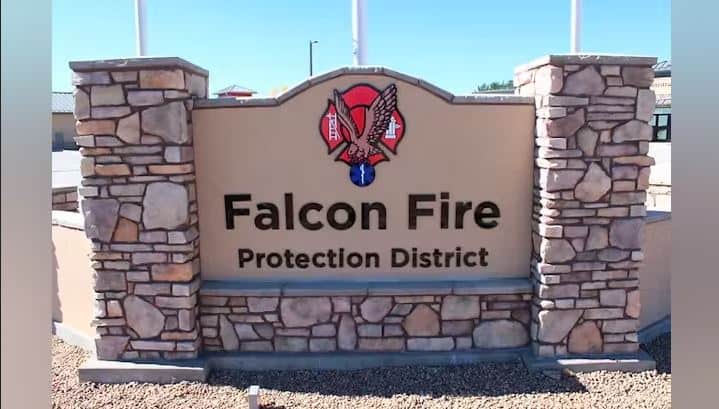New reservists complete EMS trainingTen EMS and firefighter reservists completed the Falcon Fire Protection District emergency medical services academy, held Sept. 17 to Oct. 26. Reservists attended 12 training sessions that covered orientation, local protocols, FFPD equipment familiarization, review of critical EMS topics and more.In the past, FFPD conducted separate academies for EMS and firefighters. Lt. David Smith said this is the first time that all reservists completed the EMS academy at the same time. ìEverybody gets the same training,î he said. Continuity of training is important when 90 percent of alarms are medical. In addition to the EMS academy, reservists must complete a series of ride-alongs with local EMS crews. Smith said the ride-alongs provide valuable experience that cannot be taught in the classroom, which benefits both district citizens and the reservists. ìYou want to set your people up for success,î Smith said.Fire academy classes for firefighter reservists will begin Oct. 29.Fried turkeys: delicacy or fire hazard?Deep-frying has become an increasingly popular way to prepare Thanksgiving turkeys, but this method can be extremely dangerous. ìTurkey fryers pose some significant fire hazards,î said Vernon Champlin, FFPD division chief and fire marshal. The National Fire Protection Association discourages the use of outdoor gas-fueled turkey fryers that immerse the turkey in hot oil. On its website, NFPA states: ìThe use of turkey fryers by consumers can lead to devastating burns, other injuries and the destruction of property.îUnderwriters Laboratories considers turkey fryers so dangerous that it will not certify any current models. In a statement on the UL website, John Drengenberg, UL consumer affairs manager, said, ìWe’re worried by the increasing reports of fires related with turkey fryer use. Based on our test findings, the fryers used to produce those great-tasting birds are not worth the risks. And, as a result of these tests, UL has decided not to certify any turkey fryers with our trusted UL Mark.îUL cites the following hazards associated with turkey fryers:
- Units can easily tip over and spill hot oil.
- Overfilled cooking pots may spill hot oil when the turkey is immersed, causing the burner to ignite the oil and start a fire that quickly engulfs the entire unit.
- Partially frozen turkeys placed into the fryer can cause a spillover effect and also result in an extensive fire.
- Units have no thermostat controls to prevent oil from overheating to the point of combustion.
- The cooking pot lid and handles get dangerously hot, posing severe burn hazards.
- Always use turkey fryers outdoors and a safe distance from buildings and flammable materials.
- Never use turkey fryers in a garage or on a wooden deck.
- Use fryers on a flat surface to reduce accidental tipping.
- Never leave the fryer unattended.
- Never let children or pets near the fryer, even if itís not being used.
- The oil can remain dangerously hot hours after use.
- To avoid oil spillover, do not overfill the fryer.
- Use well-insulated potholders or oven mitts when touching pot or lid handles. If possible, wear safety goggles to protect your eyes from oil splatter.
- Make sure the turkey is completely thawed to prevent spillover, fire or even an explosion.
- Keep an all-purpose fire extinguisher nearby. Never use water to extinguish a grease fire.
- Have furnaces inspected and serviced by a qualified professional at least once a year.
- Have chimneys and vents cleaned and inspected by a qualified professional at least once a year.
- Use only dry, seasoned wood in fireplaces and wood stoves.
- Ensure fireplace screens are metal or heat-tempered glass, in good condition, and properly secured.
- Use a covered metal container to dispose of ashes and keep the container at least 10 feet from structures and combustible materials.
- Keep children at least 3 feet away from fireplaces, wood stoves, pellet stoves and space heaters.
- Make sure portable space heaters have automatic shutoffs.
- Plug portable space heaters directly into electrical outlets, not into extension cords.
- Keep space heaters at least 3 feet away from anything that can burn.
- Test smoke alarms and carbon monoxide alarms, and replace batteries at least once a year.





